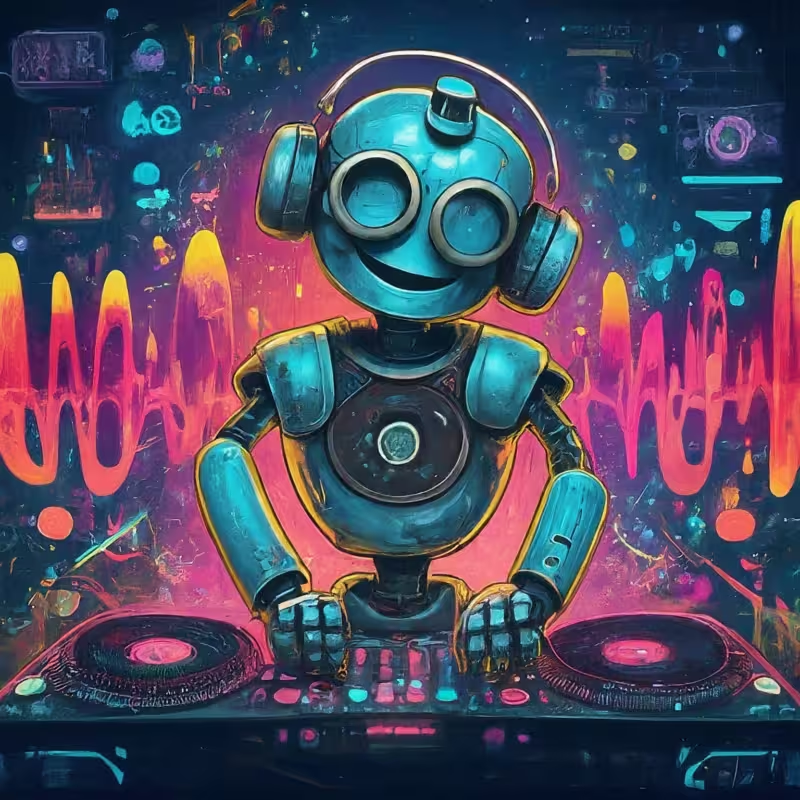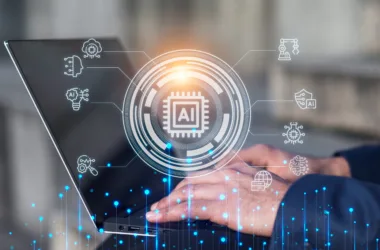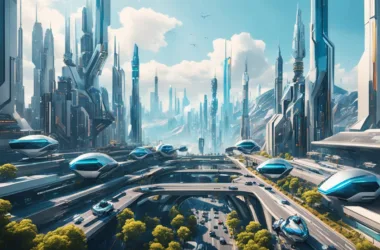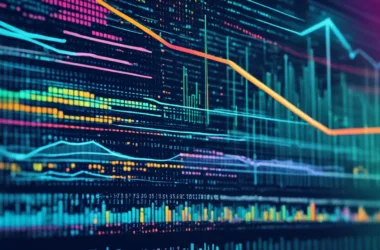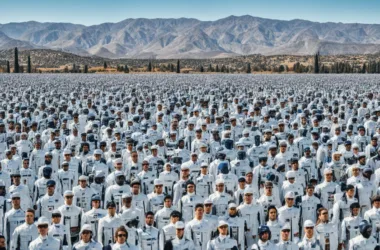Imagine this: a world where artificial intelligence crafts the next chart-topping anthem, a melody so infectious it burrows into your brain and refuses to leave. Science fiction? Not quite. AI is rapidly transforming the music industry, blurring the lines between human and machine creativity. But can a computer program truly capture the raw emotion, storytelling, and pure fun that defines a hit song? Let’s delve into the fascinating world of AI-powered music creation and explore the potential (and limitations) of this technological revolution.
The Anatomy of a Hit Song: What Makes Us Groove?
Have you ever found yourself humming a tune long after the song has ended? That’s the magic of a hit song – a perfect blend of elements that get our bodies moving and our emotions engaged. But what exactly makes a song a hit? It’s a complex recipe, but certain key ingredients consistently rise to the top.
First, there’s the melody. A catchy melody is like an earworm, burrowing into our memory with its infectious hooks and singable phrases. It often utilizes familiar scales and chord progressions, triggering a sense of recognition and pleasure in our brains. Think of the instantly recognizable melody of “Happy” by Pharrell Williams – it’s a simple structure that makes you want to tap your foot along.
Next, the lyrics play a crucial role. Hit songs often tell stories that resonate with the listener’s experiences. They might be tales of love and heartbreak, universal themes of struggle and triumph, or simply evoke a certain mood or feeling. Effective lyrics use strong imagery and relatable language, painting a vivid picture in the listener’s mind. Consider Adele’s “Someone Like You” – the lyrics capture the raw pain of heartbreak in a way that tugs at the heartstrings of anyone who’s ever experienced loss.
Finally, genre, style, and that feeling of familiarity all contribute to a song’s hit potential. Our brains find comfort in the predictable, and hit songs often tap into existing musical styles with a fresh twist. A great example is Lady Gaga’s “Poker Face,” which blends elements of pop and dance music with a unique and catchy melody.
So, the next time a song gets stuck in your head, take a moment to appreciate the intricate interplay of melody, lyrics, and style that makes it a hit. It’s a testament to the power of music to connect with us on a deep emotional level.
Enter the Machine Muse: How AI is Revolutionizing Music Creation
Gone are the days of solely relying on dusty guitars and flashes of inspiration to craft a hit song. Enter the era of the Machine Muse, where Artificial Intelligence (AI) is shaking up the music industry with its innovative tools.
Unveiling the AI Toolbox: Imagine having a musical genie at your fingertips. AI can analyze mountains of musical data to generate unique chord progressions and melodies. Stuck on a catchy hook? Tools like Amper Music can suggest fresh possibilities, sparking new ideas and igniting the creative fire. For lyricists, AI can analyze existing works to identify patterns and suggest rhymes and vocabulary. Platforms like MuseNet can help overcome writer’s block and expand your creative palette.
AI as a Collaborator: AI isn’t here to replace the songwriter, but rather to be a powerful collaborator. Think of it as a brainstorming partner who can spark new ideas and help refine existing ones. Feeling uninspired? Feed your favorite artist’s music into an AI like Jukedeck and see what kind of unique variations it generates in a similar style. This can open doors to exciting new directions for your music.
Genre Bending and Personalization: The power of AI analysis extends beyond individual instruments. AI can analyze entire genres, identifying the core elements that make them tick. Tools like AIVA excel at this, allowing songwriters to experiment with genre-bending sounds or create music specifically tailored to a target audience. Imagine crafting a song that perfectly blends the energy of pop with the emotional depth of soul – all with the help of AI’s analytical prowess.
The Machine Muse is here to stay, and its impact on music creation is undeniable. Whether it’s sparking inspiration, generating fresh ideas, or personalizing music for specific audiences, AI is transforming the way we approach music making. This is just the beginning – the future of music holds exciting possibilities as human creativity merges with the power of artificial intelligence.
Can AI Replicate the Human Touch? The Limitations of Machine Music
AI has become a powerful tool in music creation, but can it truly capture the essence of what makes music so deeply affecting? Here’s a look at some of the hurdles AI faces in replicating the human touch.
The Elusive Spark: Capturing Emotion and Storytelling in Music
Music is a language of emotions. A heart-wrenching ballad by Adele or the infectious joy of a Bruno Mars song – these evoke feelings that transcend words. While AI can analyze lyrical patterns and generate similar content, it struggles to grasp the raw emotions and lived experiences that fuel powerful songwriting.
Originality and Innovation: Can AI Push Musical Boundaries?
Great music pushes boundaries and breaks new ground. The Beatles revolutionized rock with their innovative soundscapes, while Björk continues to explore the fringes of electronic music. AI, by its nature, relies on analyzing existing data. While it can generate variations and experiment within a genre, true originality and the ability to create entirely new musical landscapes remains a challenge.
The Human Factor: Why Songwriters Remain Crucial
Despite AI’s advancements, the human element remains irreplaceable. The songwriter’s personal experiences, their unique perspective on the world – these are the ingredients that give music its soul. A song written by a human about heartbreak will likely resonate far deeper than one generated by an algorithm, no matter how sophisticated.
AI is a valuable tool, but it’s not a replacement for the human artist. The future of music likely lies in a collaborative space, where AI assists with technical aspects and sparks inspiration, while the songwriter brings the human touch that makes music truly connect with us.
A Beautiful Symphony: The Future of AI and Music Creation
The future of music isn’t a battle between human and machine, but rather a beautiful symphony played by both. Here’s a glimpse into the exciting possibilities that lie ahead.
Humans and Machines: A Collaborative Powerhouse
Imagine a world where a songwriter seamlessly blends AI-generated melodies with their own heartfelt lyrics. This collaborative future is already upon us. AI can be a powerful tool for overcoming creative roadblocks, suggesting innovative ideas, and helping refine existing ones. The songwriter remains the driving creative force, but AI acts as a valuable partner, expanding their sonic palette and streamlining the creative process.
Streamlining the Songwriting Process: AI as a Creative Catalyst
Songwriting can be a time-consuming and frustrating process. AI can help overcome these hurdles. Stuck on a melody? Feed some ideas into an AI tool and let it generate variations to spark inspiration. Struggling with lyrics? AI can analyze existing works and suggest rhymes and vocabulary, helping songwriters overcome writer’s block and explore new creative avenues.
The Unforeseen Potential: A New Era of Musical Exploration
The true potential of AI and music creation remains largely unexplored. As AI technology continues to evolve, we can expect groundbreaking advancements. Imagine AI that can analyze not just music, but cultural trends, emotions, and even brainwaves to create truly personalized and emotionally resonant music. This could usher in a new era of musical exploration, pushing boundaries and creating soundscapes we can only dream of today.
The future of music is a beautiful symphony, with human creativity harmonizing with the power of AI. This collaboration promises to revolutionize the way we create and experience music, opening doors to a world of boundless creativity and emotional connection.
Conclusion: Will AI Write the Next Billboard Chart-Topper?
The question remains: will AI write the next chart-topping song? While AI can’t replicate the raw emotion and groundbreaking spirit that define a true hit, it’s undeniable that it’s changing the musical landscape.
The Road Ahead: The Evolving Relationship Between AI and Music
The relationship between AI and music is a journey, not a destination. As AI technology continues to evolve, so too will its role in music creation. We can expect even more sophisticated tools that seamlessly integrate into the songwriting process, pushing the boundaries of what’s possible.
The Power Still Lies With Us: The Human Element in the Digital Age
Despite AI’s advancements, the human element remains the driving force behind truly impactful music. The songwriter’s unique perspective, lived experiences, and ability to connect with emotions are irreplaceable. AI can be a powerful tool, but it’s the human touch that breathes life into music, making it resonate with listeners on a deep level.
The Future of Music: A Blend of Creativity and Technology
The future of music is a beautiful blend of human creativity and technological innovation. AI won’t replace the songwriter, but rather become a valuable collaborator, sparking inspiration, streamlining processes, and pushing creative boundaries. This exciting future holds the potential for a new era of musical exploration, where music connects with us in ways we never imagined. So, while AI may not write the next chart-topper on its own, it could very well be a key player in its creation.pen_sparktunesharemore_vert


